
Every step brought me closer to the experience…
One summer evening, I came across an interview with Dutch philosopher and writer Stine Jensen. A single question stood out – simple, yet profound:
“Which experience has left the deepest impression on you?”
Her answer stayed with me: she had spent thirty minutes inside a coffin. An intense, confrontational experience in South Korea. Face to face with her own mortality.
Curious, I immediately looked up the documentary1 it was part of. It had aired just recently, and I watched it right away.
What I saw hit me. The images lingered. If this had such an impact on me – just a spectator watching safely from my home – how intense must it have been for her?
I kept thinking about it. And the strange thing was: years ago, I had thought about something like this. But back then, it had seemed too extreme. Until now.
What would happen to me if I lay there myself? Not as an observer, but really there. That thought stayed with me. I had to experience it.
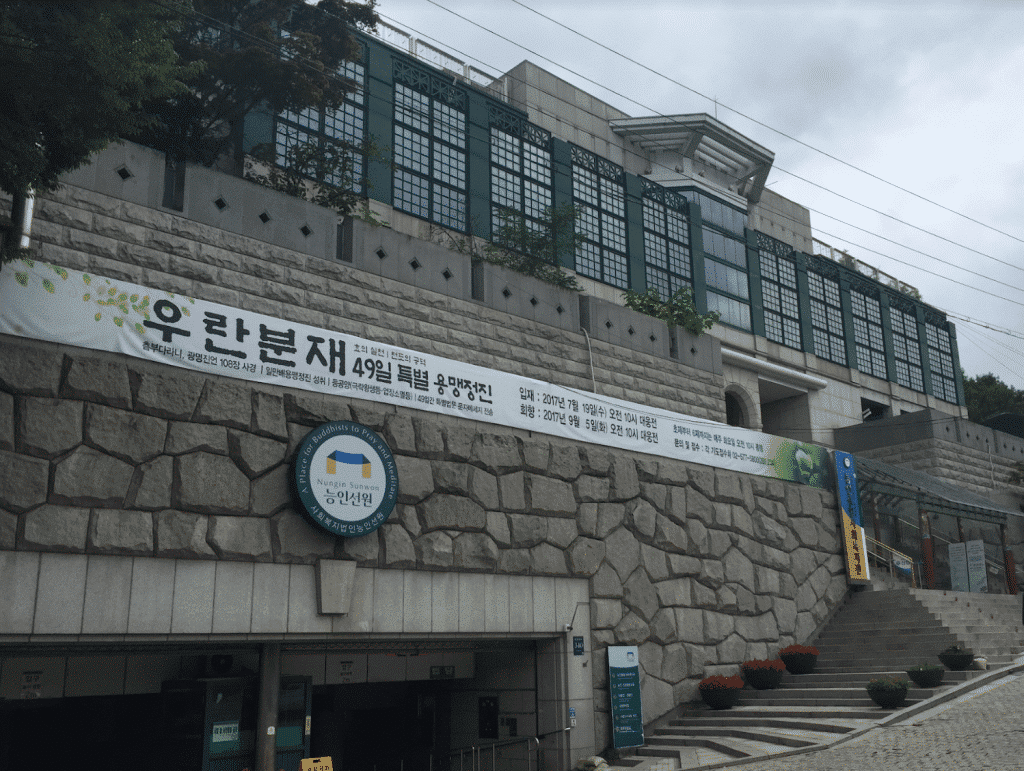
A hidden place for a life-changing experience.
The decision was made. But it wasn’t simple. Communication with the organizers was difficult – almost no English was spoken. Answers were vague.
And then there was the practical issue: Would I even fit inside a coffin? The Korean standard was between 5’9″ and 6’2″. Tight.
Still, I got on a plane. No confirmed booking. No idea if I could actually participate. And maybe even no coffin that would fit me.
Why?
Because some experiences are worth the risk.
Seoul. Enormous. Endless streets, unfamiliar characters, no English. The taxi driver had been calling people for directions – he even stopped a police officer to ask for help. After a full hour, he finally dropped me off… somewhere.
And there I was. Lost in an unknown city.
I walked, searched. Minute after minute. Had I been sent on a wild goose chase?
Then, suddenly, behind a row of trees: a grand building with a massive staircase covered in lotus flowers.
This had to be it.

Each step up… another year added.
I climbed, not knowing where it would lead me.
No seminar. No participants. Just a few meditating monks.
Had I come all this way for nothing?
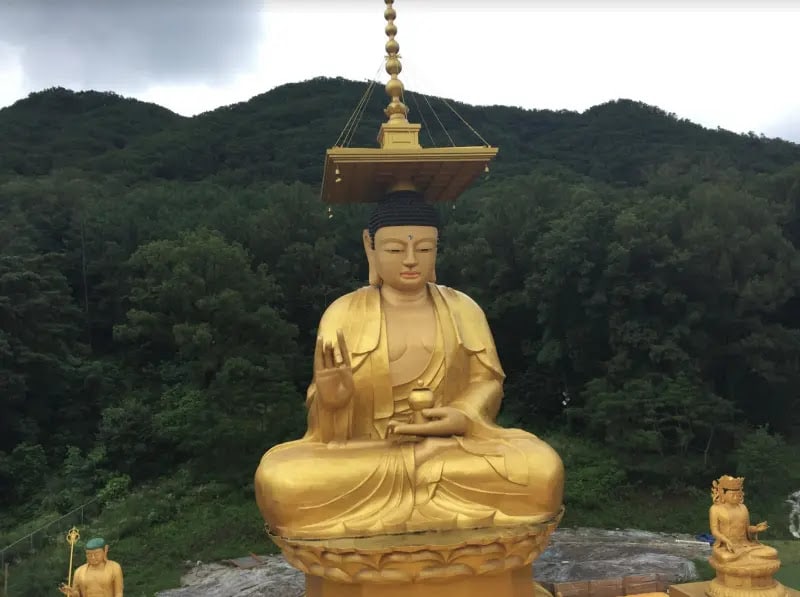
Behind the building stood this massive, serene Buddha.
An unexpected moment of stillness and reflection…
I refused to give up. In a dark stairwell, I found a janitor. Without a word, he gestured for me to go up.
Upstairs, I saw a group of people. They looked at me – as if they knew why I was here. And an English-speaking participant who could help translate.
Finally.
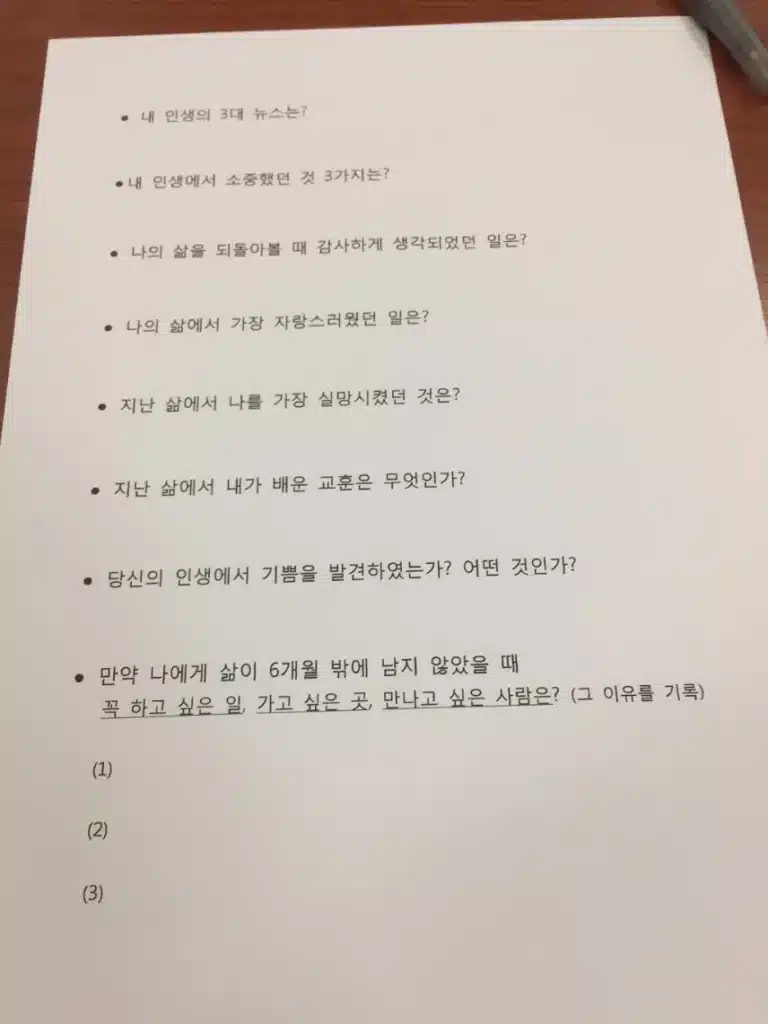
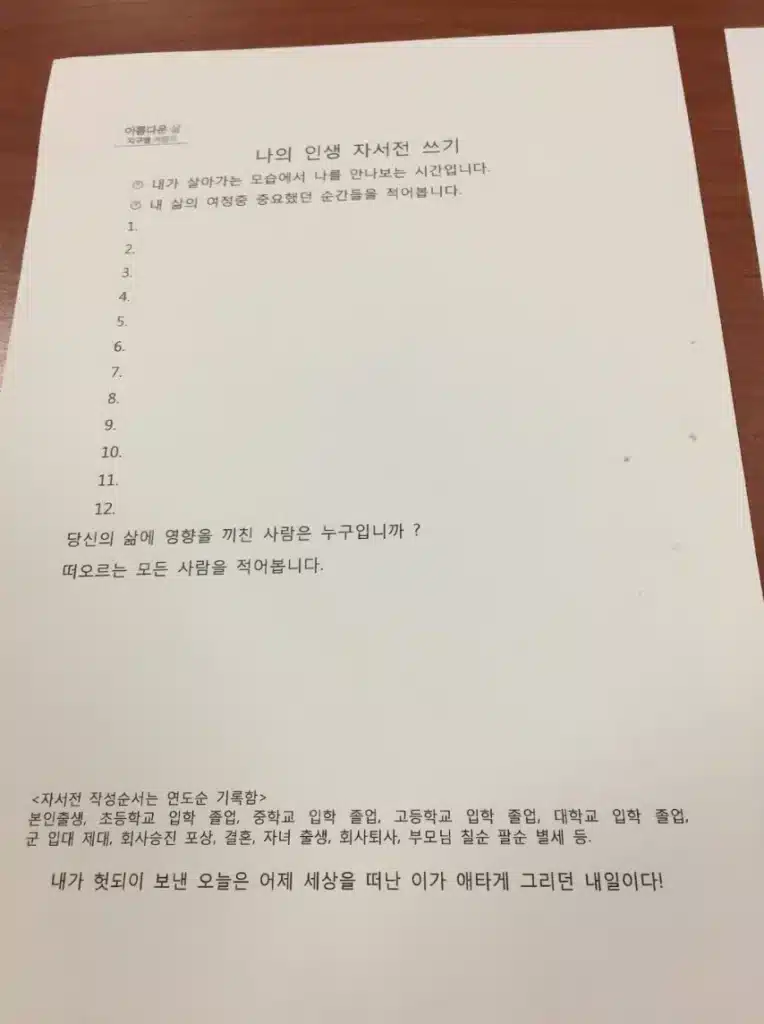
The form in front of me. A mystery. No idea what it said.
My name was on a board. There was a coffin.
The perfect size.

A shared experience with strangers…
There I was.
My hands and feet bound, as part of Korean death rituals. A cloth over my eyes. The lid closed with a dull thud.
Silence.
No future. No goals. This was it. My end.
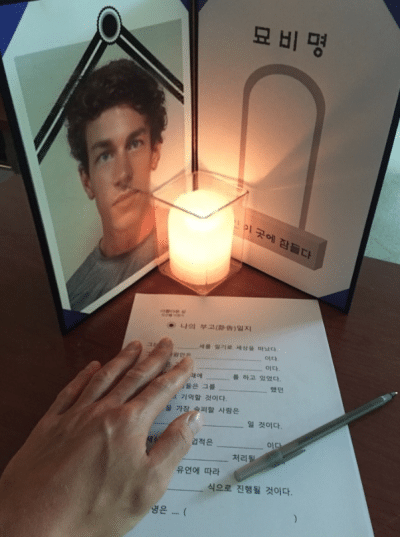
As if I had already passed. My name, my farewell photo, a candle…
My life flashed before me. The people. The mistakes. The missed chances. But also, the victories. It all surged through me.
Then, gradually, the tension eased. What remained? Pure peace.
And then – completely unexpectedly – the lid opened. Fresh air. Bright sunlight.
Life!
I had never felt so alive.
That evening, I flew home.
But I had changed.
I realized: This is what we are missing.
The awareness of mortality – the very thing that makes life richer.
We race through our days, caught up in distractions and trivialities, forgetting to truly live.
Vita Florentis was born from this insight.
I went to South Korea.
But you don’t have to travel.
This experience starts here. Now.
¹ Want to see the documentary yourself? Click here.
🟢 Clarity in a noisy world.
Leave your email and occasionally receive something special.
7 truths your heart remembers –
but your mind forgot.
No pressure. No noise. Just stillness.